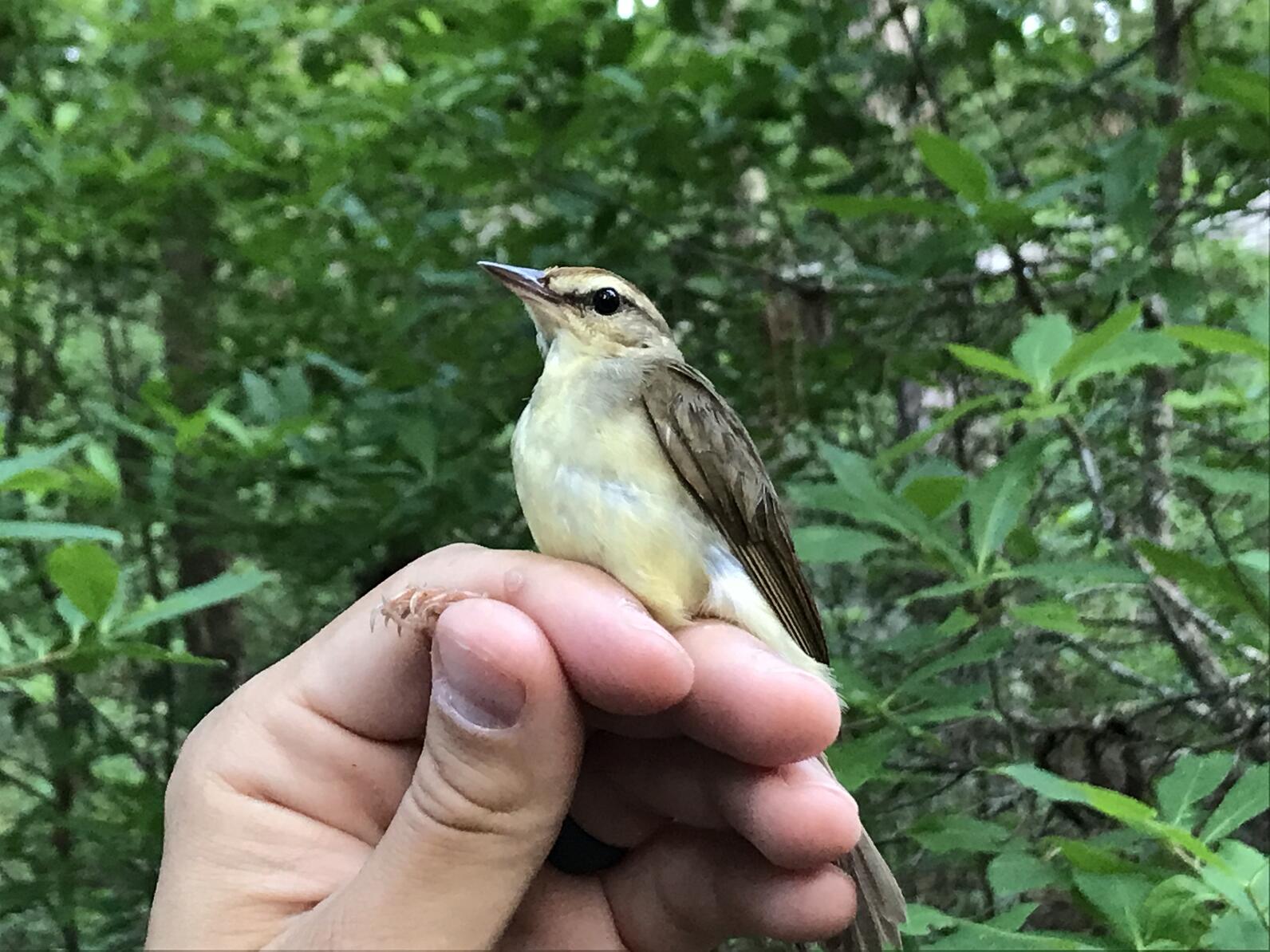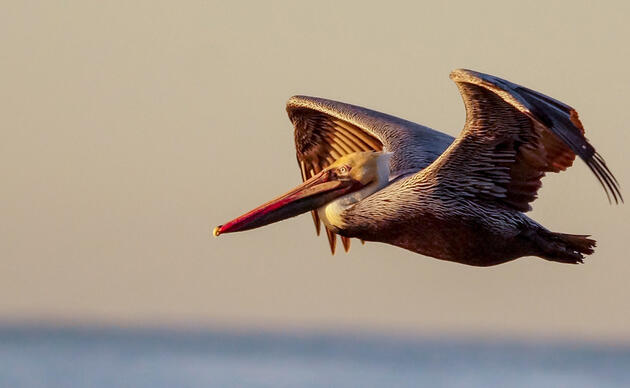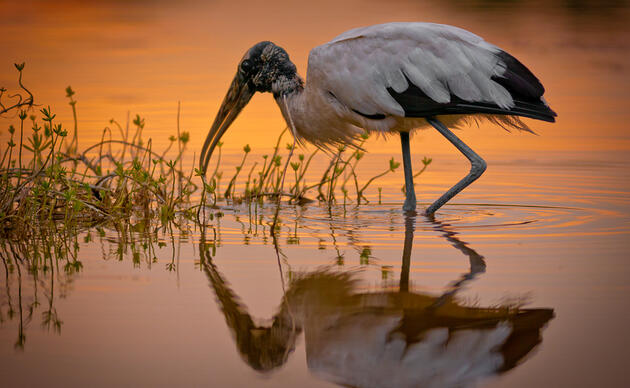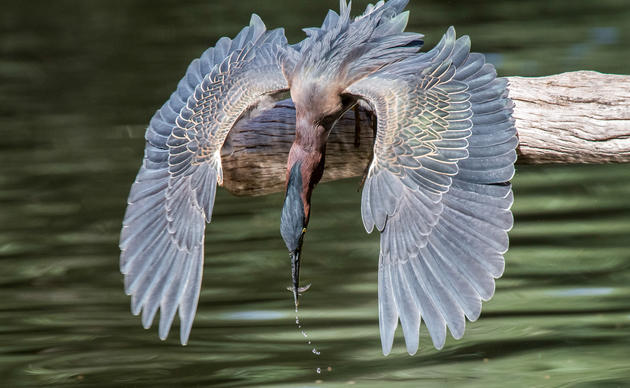Using our Silver Bluff and Beidler Forest Sanctuaries as demonstration sites, and working in partnership with nonprofit and government partners, Audubon South Carolina is on track to introduce more than 15,000 South Carolina landowners and land managers to bird and climate-friendly management methods and connect them with the resources they need to implement them.
We’re especially focused on the management of Longleaf Pine and bottomland hardwood, which are habitats of critical importance to dozens of vulnerable bird species and other wildlife, and ecosystems that help protect human communities from the effects of severe flooding. Our land protection work is made possible in part thanks to the generous support of foundations including National Fish and Wildlife Foundation, American Forest Foundation and Gaylord and Dorothy Donnelley Foundation.

Program Highlight
Bottomland hardwoods and the riparian corridors they occur in represent vital habitat for many bird species, including the rarest and most secretive warbler that nest in the Carolinas: the Swainson’s Warbler. Nesting habitat suitable for the Swainson’s is only available where bottomland stands are actively regenerating following natural tree fall or timber harvesting. Unfortunately, in South Carolina, active management within bottomland hardwoods is too often a matter of clearcutting the stand to plant Loblolly Pine, which is unsuitable habitat for most birds, or doing nothing at all.
To address this issue, Audubon is developing and implementing timber harvesting techniques that improve the health and vigor of bottomland hardwood forests, provide a financial return on investment to landowners, and create vital habitat for Swainson’s Warblers and other bird species. In 2021, we will begin deploying geolocators and nanotags on Swainson’s to better gauge their population health and further improve our conservation planning.




